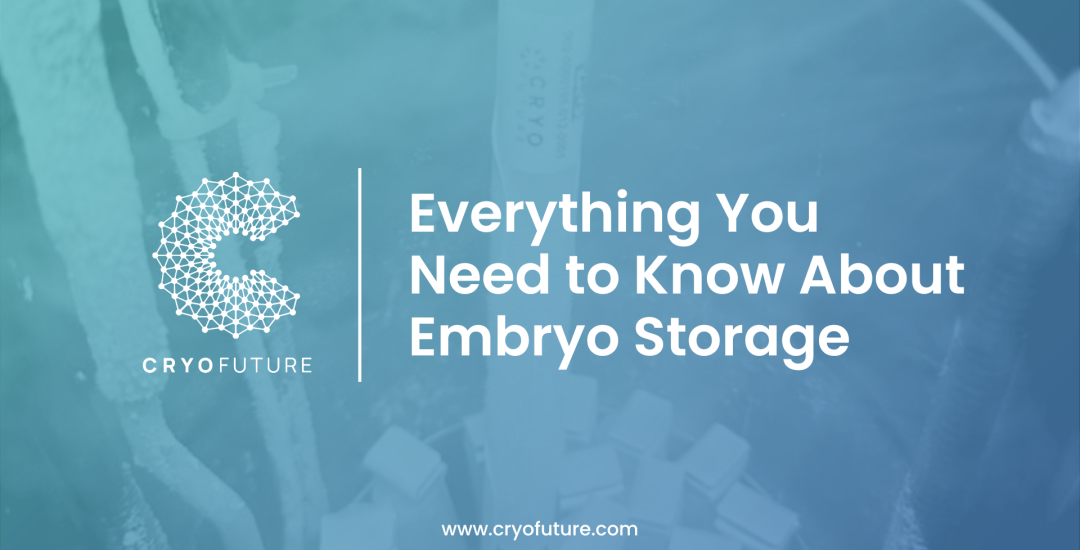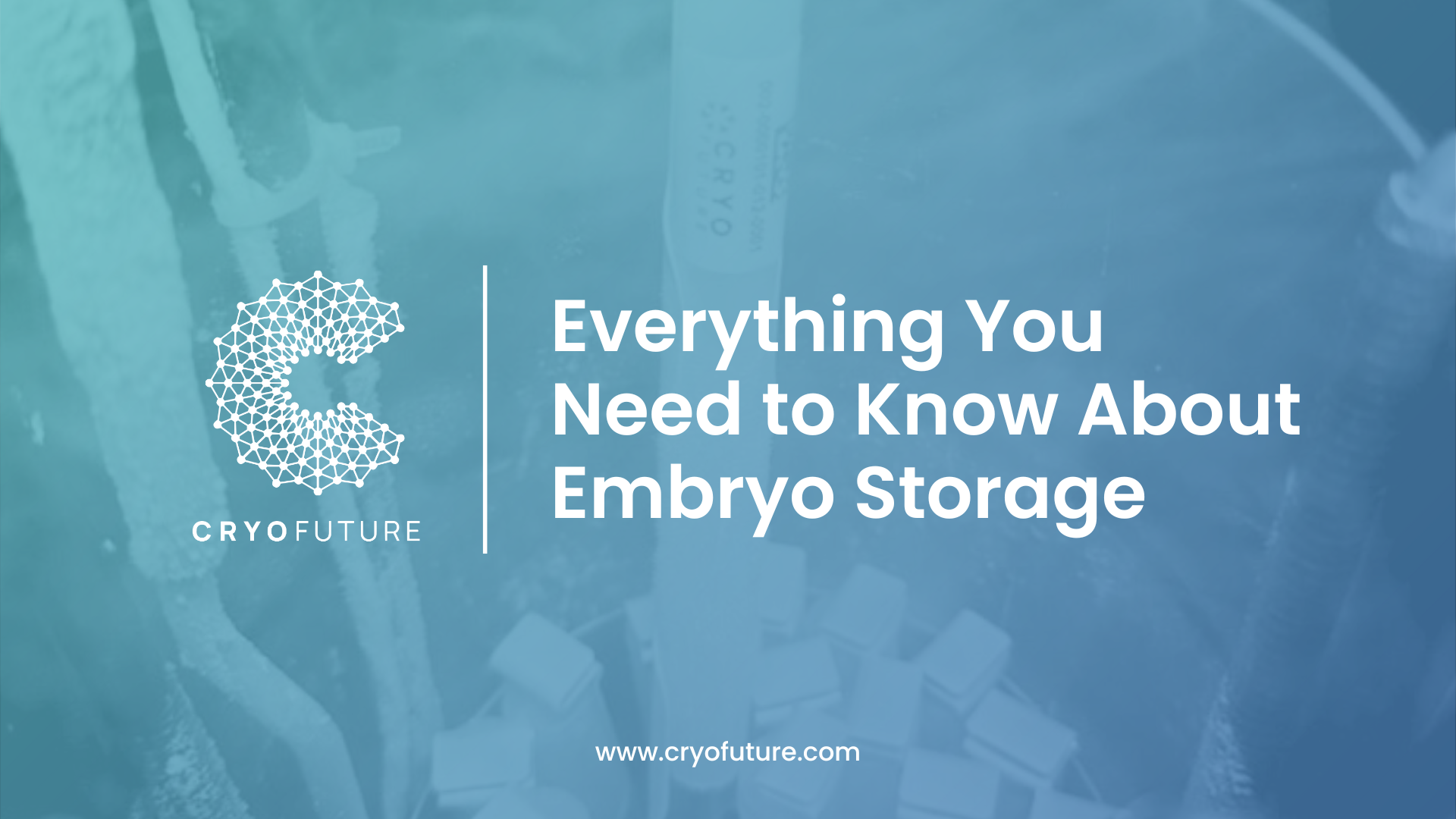BLOG | NEWS
Everything You Need to Know About Embryo Storage
Embryo storage, also known as embryo cryopreservation, is a vital component of modern fertility treatments. This guide provides a comprehensive overview of the process, benefits, and considerations involved in storing embryos.
Why Freeze Embryos Instead of Eggs?
Freezing embryos is often preferred over eggs because embryos are more robust and have a higher survival rate during the freezing and thawing process. Leading laboratories manage to successfully thaw 99% of frozen blastocyst embryos, making embryo freezing a common practice in fertility treatments.
Are Babies Born from Frozen Embryos Healthy?
Research indicates that babies born from frozen embryos are generally healthy. While some studies have noted a slightly higher risk of certain health conditions compared to those born from fresh embryo transfers or natural conception, the overall health outcomes are very positive. It’s important to consult with healthcare providers to understand the full spectrum of potential risks and benefits, ensuring the best decisions for your family.
Is It Better to Store Embryos or Eggs?
The decision between storing embryos or eggs depends on individual circumstances. Embryos tend to be more durable during the freezing and thawing process. If you have a partner and plan to have children together in the future, freezing embryos might be the better option. On the other hand, if you are single or prefer to delay fertilization, freezing eggs could be more appropriate.
What Are the Disadvantages of Frozen Embryos?
While freezing embryos offers many benefits, there are potential downsides:
- Damage During Freezing/Thawing: The process can sometimes damage embryos.
- Survival Rates: Not all embryos survive the freezing and thawing process.
- Storage Costs: Long-term storage fees can accumulate over time.
Costs and Storage Duration
The cost of freezing embryos varies but typically ranges between $1,400 and $1,500 per IVF cycle, with additional annual storage fees. Embryos can be stored for many years, with some remaining viable for decades when stored under optimal conditions. Facilities like CryoFuture offer advanced cryostorage solutions to ensure the longevity and safety of your embryos.
What Happens to Unused Embryos?
Unused embryos can be:
- Discarded: The fertility clinic will thaw and discard them.
- Donated: To other couples trying to conceive or for scientific research.
- Kept in Storage: For potential future use.
Insurance Coverage for Embryo Storage
Insurance coverage for embryo freezing varies by provider and plan. Generally, oocyte cryopreservation (egg freezing) is not fully covered by insurance. It’s important to verify specific coverage details with your insurance provider.
Procedures Involved in Embryo Storage
- Initial Consultation: Discuss your options with a fertility specialist.
- Ovarian Stimulation: Hormonal treatments stimulate the ovaries to produce multiple eggs.
- Egg Retrieval: Eggs are collected in an outpatient procedure.
- Fertilization: Eggs are fertilized with sperm to create embryos.
- Freezing: Embryos are frozen using vitrification or slow-freezing methods and stored in liquid nitrogen.
Choosing the Right Embryo Storage Facility
Selecting a reliable and secure storage facility is crucial for preserving your embryos.
Look for facilities that offer:
- Advanced Monitoring Systems: Continuous monitoring to ensure optimal conditions.
- State-of-the-Art Security: Protection against unauthorized access and environmental fluctuations.
- Expert Handling: Managed by professionals with extensive experience in embryology.
For those considering their options, facilities like CryoFuture provide comprehensive and secure cryostorage solutions, ensuring that your embryos are stored in the best possible conditions.
Frequently Asked Questions
What is the Best Long-Term Embryo Storage Facility?
Choosing the right facility is crucial for the safe storage of embryos. Look for a facility that offers advanced monitoring systems, state-of-the-art storage conditions, and a proven track record in cryopreservation. For example, CryoFuture is known for its cutting-edge technology and impeccable safety protocols, making it a trusted choice for many.
How Long Can Embryos Be Frozen?
Embryos can be frozen indefinitely under optimal storage conditions. Some embryos have been successfully used after being stored for more than a decade.
Are Frozen Embryos Alive?
Frozen embryos are in a suspended state of animation. While they are not actively developing, they can be thawed and continue their development once implanted.
Do Frozen Embryos Have a Heartbeat?
Embryos at the freezing stage do not have a heartbeat. They are typically frozen at the blastocyst stage, which occurs about five days after fertilization.
Is a Frozen Embryo a Baby?
A frozen embryo is a fertilized egg at an early stage of development. It has the potential to develop into a baby once implanted in the uterus and allowed to grow to full term.
What Happens to IVF Embryos That Don’t Get Used?
Unused IVF embryos can be discarded, donated for scientific research, or donated to other couples. Clinics may also offer the option to keep them in storage for future use.

